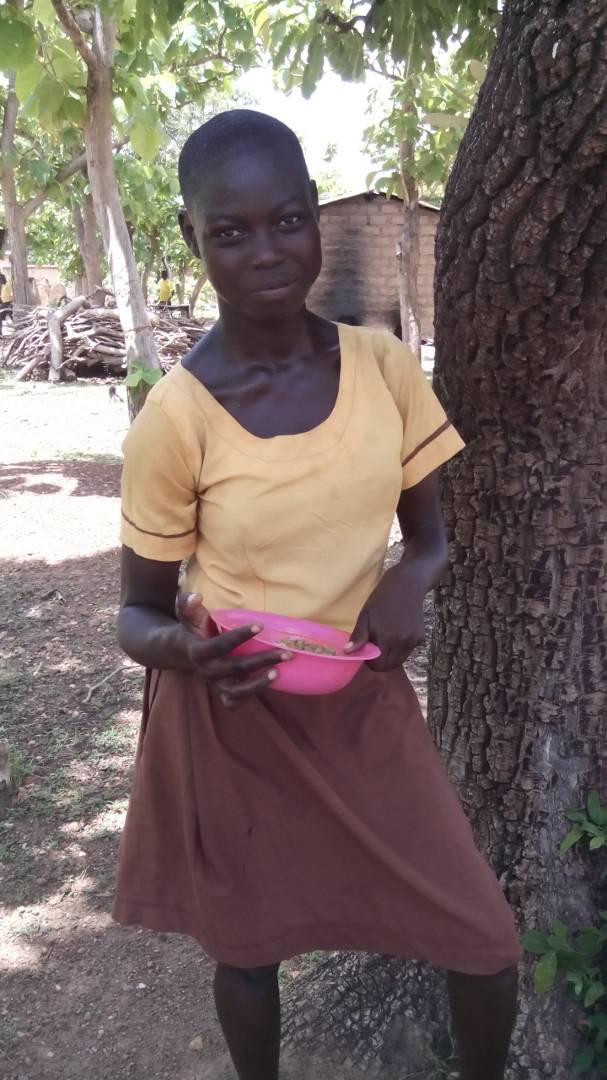Last month, on a monitoring and evaluation trip to Lawra we spent time in each of our ATE supported schools. It is a fantastic opportunity to meet the individuals impacted by ATE’s programmes and to assess how well the programme is operating.
During this time we met Edith on a trip to Dowine Junior High School. The school is incredibly remote, almost an hour on the back of a motorbike away from Lawra town; a journey that left us all covered in the orange dust from the dry and bumpy roads.
The day was full of activity, interviewing children, Parents Teacher Association members, and teachers, as well as weighing and measuring each child. It was a busy day with lots of new faces and stories but meeting Edith stood out to us, a sixteen year old girl in form three.
Jonathan Hall is a Ramsbury based volunteer and has visited Lawra an impressive four times in the last ten months. Below is the account of his first meeting with Edith.
Edith is a bright, interesting and articulate sixteen-year-old. She has a ready smile and communicates in excellent English. She also has cerebral palsy.
We talk at a desk that has been positioned under a shady tree a short distance from the school.
Edith has been at Dowine School since starting in Form 1 and she was helped with getting enrolled at the school by an NGO called ‘Get Pass Scholarship’. The NGO’s main mission is to find places for students with disabilities at Junior High Schools.
As a result of her cerebral palsy Edith walks slowly, at approximately half normal speed. It takes her three hours to walk from her house in Koh to the school. She lives with her mother and father, she has no siblings. Her mother and father work the family farm, but in a case of extreme misfortune Edith’s father needed to have his leg amputated. The two parents now struggle to put food on the table at home and Edith tells me she never eats breakfast before she leaves home, and that neither is there enough left over after her parents have eaten for her to ever have dinner. If it wasn’t for the lunchtime meal the ATE provides every day Edith says she doesn’t know where her food would come from.
Edith says she leaves home at 6am to arrive at school at 9am, and then at 2pm she makes the return journey arriving home at 5pm. A while ago she was offered a bicycle by an NGO however her condition doesn’t allow her to pedal or steer. She wants to come to school though to learn and she dreams of becoming a teacher.
Edith has very few friends at school. Most of the students shun her because of her disability. In local tradition a child born with a disability is seen as cursed and the community will avoid contact with the child and its family. Edith is unusual in that a place at school has been found for her; most children in her situation will be excluded from an education.
Just before Edith gets up from the table she tells me what her Dagaare name ‘Ngmenkaara’ means in English. It means ‘God is looking after me’.
Edith leaves me to shuffle slowly back to her classroom. I sit at my desk and stare out in silence at the dusty savannah.